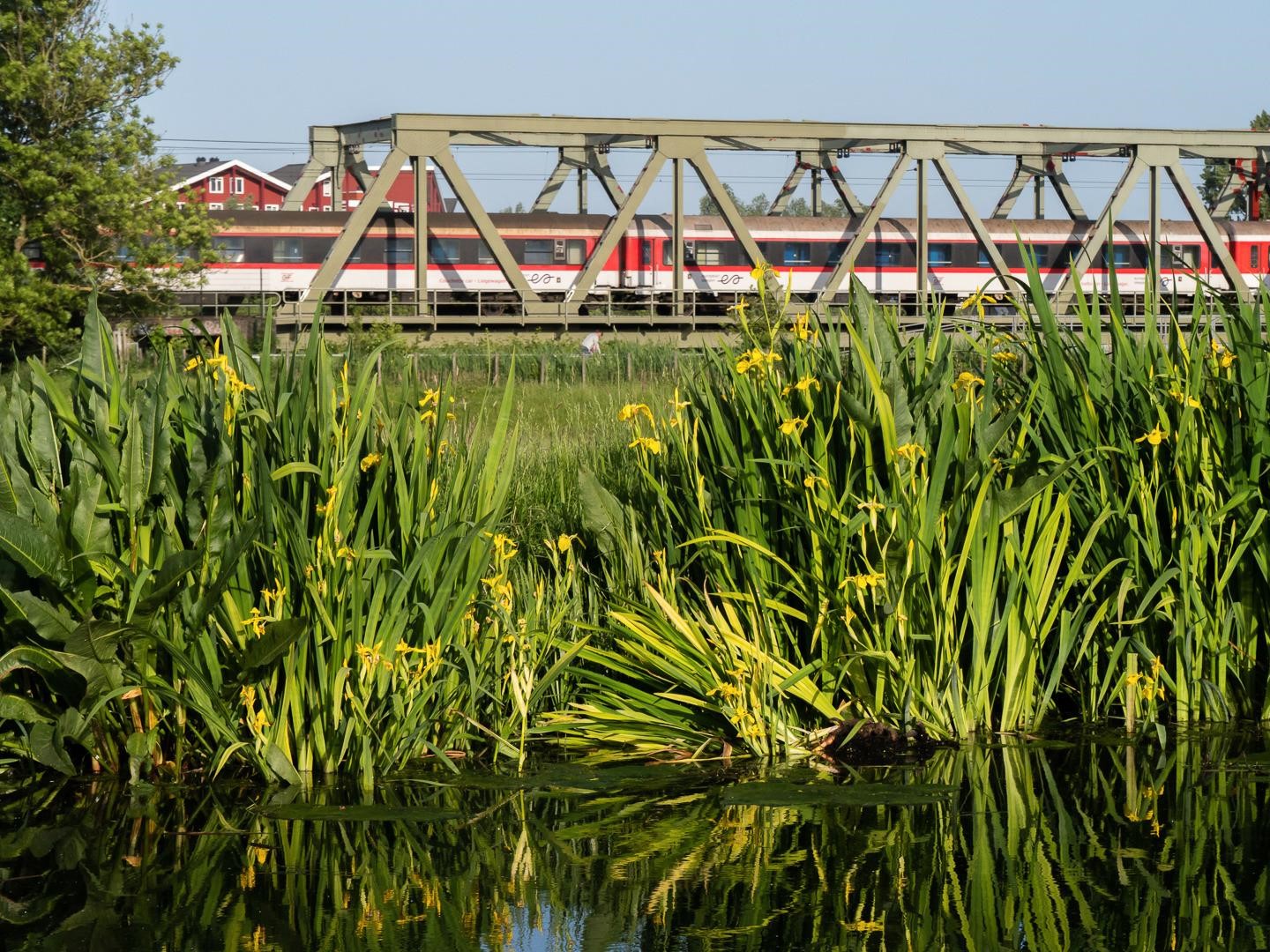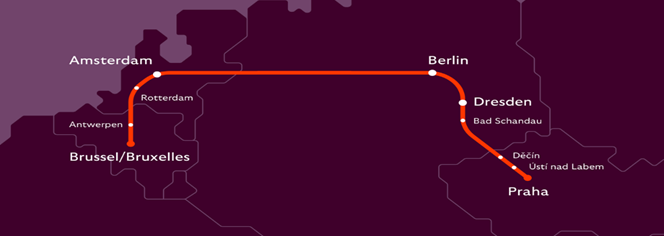
Four countries and four European capitals on one route. They are newly connected by the extended night train line of the European Sleeper company leading from Brussels to Prague. From March 26, 2024, people can travel three times a week from Belgium to the Czech Republic and back. The journey will take approximately fifteen hours. New stops have been added, in Dresden, Bad Schandau, Děčín, Ústí nad Labem and Prague. People can also reach us from Paris or London with a single transfer in Brussels
Less than ten months after the launch of the direct train line from Brussels to Berlin, the first passengers can ride all the way to Prague.
The first connection left the Belgian capital on Monday, March 25, 2024. He will make his return trip a day later. It will travel in each direction three times a week and will stop at the stations Brussels, Antwerp, Rotterdam, Amsterdam, Berlin, Dresden, Bad Schandau, Děčín, Ústí nad Labem and Prague.
The train will depart from the capital of the Czech Republic every Tuesday, Thursday, and Sunday at 6:04 p.m. It will arrive in Brussels the following day at 10:27 a.m. The price of tickets with a seat starts at 49 euros in a seat section and 79 euros per bed in a shared bed section.
Trains offer an attractive alternative to other modes of transport and produce 7-10 times less emissions than, for example, airplanes. Another significant advantage of night trains is their ability to convert long distances into a mere overnight journey, allowing passengers to travel efficiently while sleeping. A person arrives at the destination in the morning rested and refreshed and has the whole day at his disposal. The price of the ticket includes accommodation, so the night train saves money on the hotel. Another advantage and saving of time and money also stems from the fact that the train usually stops right in the center of cities. Therefore, it is not necessary to travel frequently to and from the airport.
“The history of railway transport in the Czech Republic dates back to the 1820s. It serves us now and has huge potential for the future. Not only is it environmentally friendly, but thanks to its dense rail network, it offers many options for travel. You can get practically anywhere by train. In addition, this line has another added value – through it we can support tourism in the regions much better. The set also includes a cycle wagon and will stop in Děčín and Ústí nad Labem, among others. In practice, this means that cyclists and hiking enthusiasts do not have to go all the way to Prague. They can enjoy, for example, a cycling trip on the Elbe trail or a walking adventure through Hřebenovce through Czech Switzerland, the gateway to which is the city of Děčín,” says František Reismüller, director of the Czech Tourism Office – CzechTourism, adding: “Due to the size of the wagons, this mode of transport also offers much more space, and thus comfort. As part of our mission, we certainly want to continue to support similar projects that connect the modern world and strengthen the sustainability of tourism both in the Czech Republic and across Europe.”

“On the occasion of the first run of the night train, we brought representatives of the Dutch and Belgian media and fourteen Belgian travel agencies that specialize in selling train travel or are considering including this product in their offer. In addition to Prague, which is of course still the biggest attraction, we presented them with Pardubice and Mělník as alternative options for a trip by train from the capital. The next press trip will take place in May, when we will show its participants how tourists can spend an active vacation in the Ústí Region. Travelers from the Netherlands and Belgium often look for this type of vacation. For example, roughly 7% of Belgians and almost 11% of Dutch people who come to the country spend it on bicycles,” adds Petra Palečková, director of the foreign representation of CzechTourism Benelux.
Tourists from Belgium and the Netherlands are among the foreign visitors who come to the Czech Republic in greater numbers. Last year, a record 261,820 Dutch people chose the country as their holiday destination, about 5 pp more than in 2019. On average, they spent 3.73 days here, and the reason for their trip was mainly recreation. A total of 62% of them went to Prague. When it comes to accommodation, they mainly chose some of the collective accommodation facilities.
Compared to the pre-covid period, the number of Belgians fell by 14 p.p., and a total of 94,034 arrived. On the contrary, the length of their stay increased slightly. On average, they spent almost four days in the Czech Republic. Like the Dutch, they came to the country mainly for recreation and lived in one of the collective accommodation facilities. Again, they most often headed to the capital, with 67% of them choosing it as their destination.
Both Dutch (42%) and Belgians (69%) most often arrive in the Czech Republic by plane. The second most popular means for tourists from the Netherlands (39%) and Belgium (22%) is a car or motorbike. As another mode of transport, the Dutch (13%) and Belgians (4%) choose a motorhome, and the same two percent use the train when traveling to the Czech Republic.
European Sleeper is not a traditional carrier. The organization was founded in the Netherlands as a cooperative that wants to restore night trains. Small investors supported the start of the company with half a million euros. In the next round, membership shares in European Sleeper were sold for 2 million euros and the number of members grew to 3,500. This created a community of fans of night trains, which is actively involved in the cooperative’s activities. In the following years, it plans to launch a new line connecting Amsterdam, Brussels, and Barcelona.

